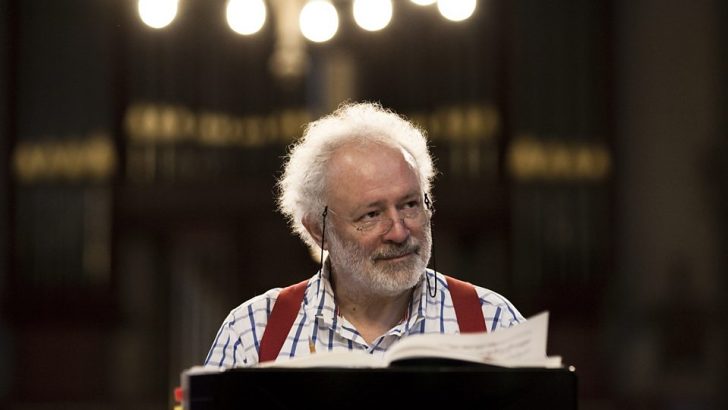The recent canonisation by Pope Francis of St John Henry Newman, responsible for the building of University Church, an artistic gem erected in the garden of 87 St Stephen’s Green in Dublin, has turned my attention again to the saint’s The Dream of Gerontius.
In the 1865 seven-phase poem the elderly Gerontius – his name taken from the ancient Greek meaning old man – lies on his deathbed. He reawakens as his soul journeys to Judgment, accompanied by his Guardian Angel. His eventual committal to the soothing lake of purgatory brings with it a final benediction and promise of eternal glory.
Staunch Catholic composer Edward Elgar was completely smitten by Newman’s work and spent many years pondering on how best to set it to music. Dvorák, another devout Catholic, had similar thoughts and actually met Newman to discuss the idea but, in time, decided against the daunting proposition. Elgar kept Gerontius close to his heart and, when a commission from Birmingham’s Triennial Music Festival for a choral work for its 1900 event was offered, he sprang into action.
His close friend and editor in Novello’s publishing house August Jaeger – the Nimrod pictured within the Enigma Variations – helped the composer in pruning Newman’s verses and shaping the two-part composition. Jaeger gave particular advice on the climactic depiction of the moment of Judgment with which Elgar was experiencing decided difficulty.
Sadly, the Birmingham première on October 3, 1900 was something of a disaster. Directed by strong Elgar advocate Hans Richter, the main dilemma lay with the under-rehearsed chorus who found the modernity of Elgar’s writing almost beyond their capabilities. The devastated composer commented: “I always said God was against art.”
Oppressive
Some non-Catholic critics had trouble with Newman’s text and the dogma of purgatory. Composer Hubert Parry finding its Catholicism oppressive said, “it reeks too much of the morbid and unnatural terrors and mysteries”. Dublin-born professor of music in Cambridge Charles Villiers Stanford while praising Elgar’s music still remarked, “it stinks of incense”.
However, all was not lost as German conductor/composer Julius Buths, who was also director of the Lower Rhine Music Festival and an Elgar enthusiast, took Gerontius to Düsseldorf where it was warmly received.
Gradually the work was recognised as the masterpiece it is and over the next decade it had performances in several European and North American cities.
London heard the piece for the first time on June 6, 1903 in Westminster Cathedral, soon after the church’s consecration. The first Dublin performance came on April 11, 1911 in the ‘old’ Theatre Royal with the Dublin Oratorio and Philharmonic Society under the baton of Vincent O’Brien.
Although Our Lady’s Choral Society has been associated with The Dream since 1951, the RTÉ Philharmonic Choir seems to have stolen a commemorative march on its senior companion by presenting it at the NCH on Friday, November 8.
Veteran Belfast-born conductor Kenneth Montgomery will be on the rostrum with visiting soloists Norbert Ernst, Gerontius; Catherine Wyn-Rodgers, Angel and Johan Wållberg, Priest and Angel of the Agony. I look forward to a deeply musical and spiritual occasion.


 Kenneth Montgomery
Photo: BBC
Kenneth Montgomery
Photo: BBC 